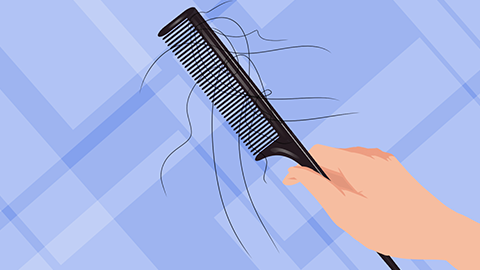What are the treatments for seborrheic alopecia?
Seborrheic alopecia generally refers to androgenetic alopecia. Under normal circumstances, androgenetic alopecia may be related to factors such as hormonal changes during puberty, mental stress, drug side effects, malnutrition, and seborrheic dermatitis. Patients can treat the condition by regularly washing their hair, receiving psychological counseling, adjusting medications, and undergoing drug therapy. It is recommended that patients seek timely medical attention at a hospital and follow medical advice for treatment. Detailed analysis is as follows:

1. Hormonal changes during puberty: Puberty is a period of significant hormonal fluctuations in the body, especially an increase in androgen levels, which may trigger androgenetic alopecia. It is recommended to maintain good personal hygiene habits, regularly wash the hair, and use oil-control shampoo.
2. Mental stress: Long-term mental stress or a state of stress can affect endocrine balance, increasing the levels of hormones such as cortisol in the body, leading to androgenetic alopecia. It is recommended to use methods such as psychological counseling and relaxation training to reduce stress responses.
3. Drug side effects: Medications may interfere with the normal hair growth cycle by affecting the endocrine system or acting directly on hair follicles, resulting in hair loss. Medications can be adjusted under a doctor's guidance, and if necessary, alternative medications can be used.
4. Malnutrition: Deficiency of essential nutrients such as protein, iron, zinc, vitamin A, and vitamin D can affect hair health, leading to androgenetic alopecia. It is recommended to adjust the diet structure and increase the intake of foods rich in these nutrients, such as meat, eggs, and leafy vegetables.
5. Seborrheic dermatitis: Scalp inflammation caused by seborrheic dermatitis disrupts the normal scalp environment, affects hair follicle health, increases sebum production, and worsens hair loss, which may be accompanied by scalp erythema, itching, and increased scaling. Patients are advised to use medications such as ketoconazole shampoo, mometasone furoate cream, and vitamin B6 tablets under medical guidance to alleviate the condition.
During treatment, adjust your diet, avoid staying up late, ensure adequate sleep, and enhance immune function. At the same time, avoid frequent shampooing and scratching the scalp, and perform regular scalp massages.







